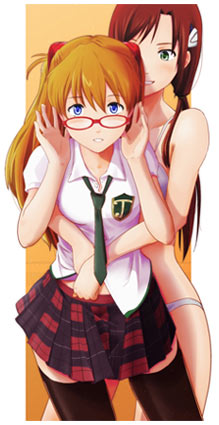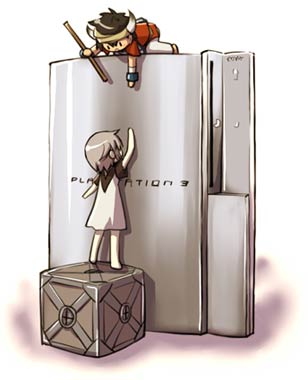As with any language, Japanese has certain weirdness built into it. There are, of course, words for occupations which have become associated with females, like nurse (kangofu, lit. “nursing wife”) or the usually-but-not-always female teachers at preschools, called hobo or “protective mothers.” While most of these terms eventually get updated to gender-neutral (some might say “politically correct”) versions, other terms remain odd. A Japanese child who has lived abroad for several years then returned to Japan (like Asuka from Eva or Kaede from Sayonara Zetsubou Sensei) is always called kikoku shijo, a word that literally means “returned-to-the-country girl-child,” even if the child in question is a boy. Similarly, the word for “single parent” in Japanese is boshi katei, which literally means “mother-and-child household,” which isn’t a terribly useful word if the single parent is the father. (Foreigners love pointing out oddities like this to Japanese people, who just grunt, not usually thinking deeply about their own language.) There’s another linguistic oddity that I’ll pass along because it’s fun. In humble Japan it’s common to turn a compliment back on the person giving it by using the phrase okage-sama de (oh-KAH-gay sah-mah de), which literally means “yes, thanks to you,” despite the fact that the person doing the complimenting probably didn’t assist in any way. If a Japanese person says something nice to you, bow and use this self-effacing phrase, and watch them jump out of their shoes in surprise.

Japanese kids who have lived overseas are called “returned girl children” even if they’re boys.















